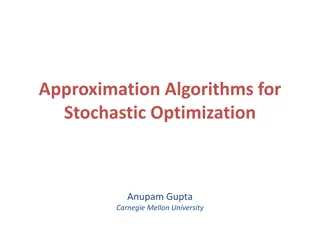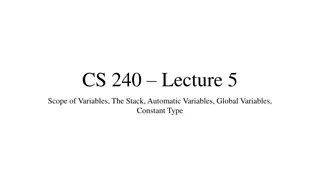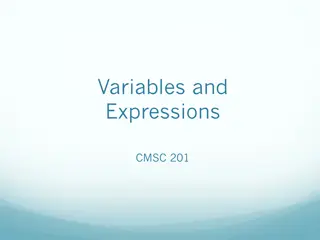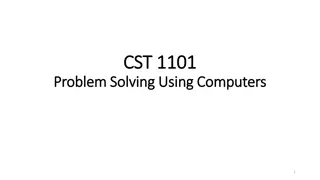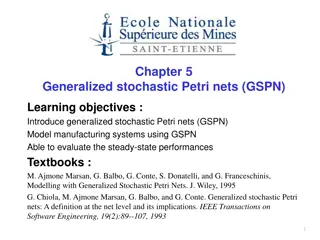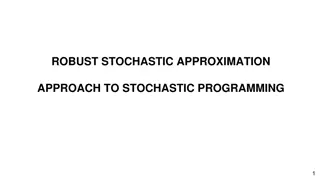Types of Stochastic Processes and Variables
Stochastic processes involve various types of random variables categorized by discrete or continuous time. Examples include dice rolls, call durations, and temperature fluctuations. Explore these concepts further through Markov chains and more.
Download Presentation

Please find below an Image/Link to download the presentation.
The content on the website is provided AS IS for your information and personal use only. It may not be sold, licensed, or shared on other websites without obtaining consent from the author.If you encounter any issues during the download, it is possible that the publisher has removed the file from their server.
You are allowed to download the files provided on this website for personal or commercial use, subject to the condition that they are used lawfully. All files are the property of their respective owners.
The content on the website is provided AS IS for your information and personal use only. It may not be sold, licensed, or shared on other websites without obtaining consent from the author.
E N D
Presentation Transcript
Types of Stochastic Processes There are two kinds of random variables: Discrete and Continues also the time can separate by the same category then we may have the following types of the stochastic processes: The number of the dots appear on a throwing die. Discrete time- Continues random variable The call duration on each calling of a secretary. Continues time-Discrete random variable The number of the calls which received to a secretary in any time duration. Continues time-Continues random variable The temperature of a room in any time duration. Discrete time-Discrete random variable A Markov chain is a discrete time-discrete random variable which satisfy in some properties which will discussed in next steps.
1 2 3 . . . i . . . s 1 2 3 . . . i . . . s 1 2 3 . . . i . . . s 1 2 3 . . . 1 2 3 . . l 1 2 3 . . . i . . . s j . . s . . . s 0 1 2 t t+1 n X0=3 X1=1 X2=3 Xt=i Xt+1=j Xn=l
1 2 . j . s 1 2 . j . s 1 2 . i . s 1 2 . i . s 1 2 . i . s 1 2 . i . s = pij pij t+n t+n+1 0 1 t t+1
1-p 0 1 2 3 4 0 1 2 3 4 0 1 2 3 4 0 1 2 3 4 1-p p 1-p p p












